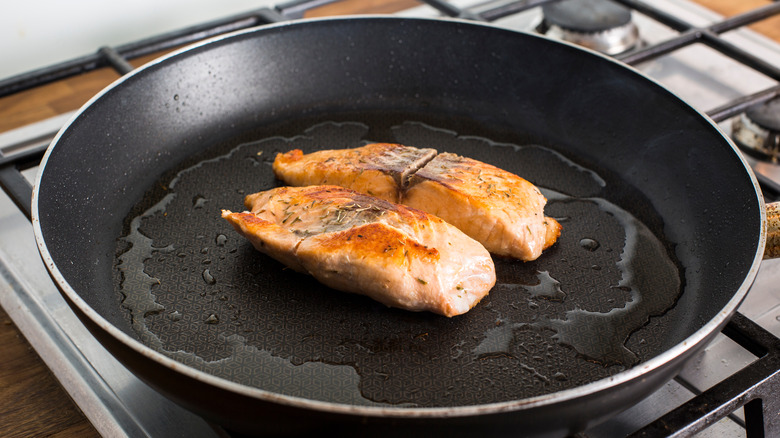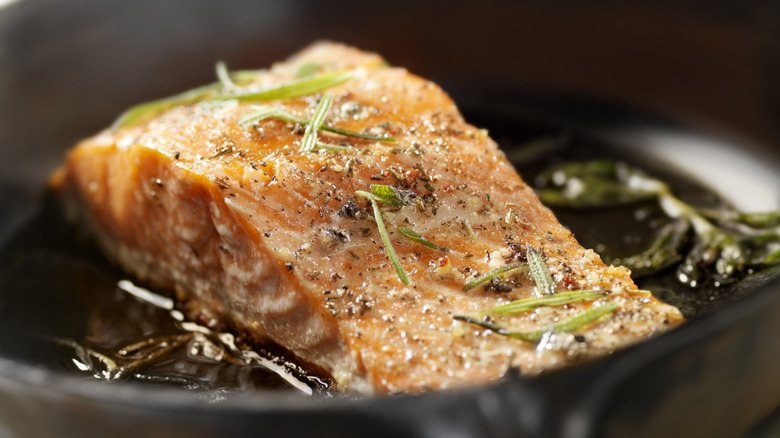J. Kenji López-Alt Has A Brilliant Trick To Prevent Oil Splatters While Cooking Salmon
We love eating salmon, but honestly, we're not always a fan of cooking it, especially when it comes to pan-searing the fishy fish. Its salmony juices and unappetizing foamy protein (or albumin) often seep out of the flesh, mix with the oil in the pan, and splatter all over your stovetop and kitchen. When making simple baked honey citrus salmon, we don't run into this issue as the oven contains the mess and odors.
We're not alone in having this pet peeve with pan-frying salmon. Seattle bestselling cookbook author and brainy food personality J. Kenji López-Alt doesn't enjoy the resulting oily fishy spatter from pan-frying salmon either. And he also isn't fond of the smells salmon makes when cooked — or of the albumin oozing out of the cooked pink fish. Luckily, López-Alt has a brilliant trick to prevent oil splatters while cooking salmon, which he shared on Milk Street Radio.
This trick stems from a Japanese cooking technique used to make shiozake, or salted salmon. Simply pat the salmon fillet dry and sprinkle a layer of kosher salt over the fish. Let it rest, overnight, uncovered in your refrigerator. Pan-fry it the next day and watch the fish lock in its moisture and foamy white protein and not cause messy oil splatters.
The next time you pan-sear salmon, dry brine it first
So how exactly does curing the salmon overnight with salt prevent the fish from releasing its juices and milky protein foam when pan-fried? As an homage to López-Alt, let's delve into a little food science. Essentially, you are dry brining the salmon with the salt. The surface of the fish becomes drier, as López-Alt explains, and the salt stops the fish juices from seeping off the fish and into the oily pan. Dry brining helps lock in the salmon's moisture. As a result, this also prevents the albumin, which is now retained in the flesh along with all the fish juices, from oozing out. With a nice dry surface to work with, you'll get a perfect sear on the salmon in the pan.
Salt and dry brining proteins is a common technique across Asia, not just prevalent in Japan. In Cantonese cuisine, salt brining is the solution for perfect air-fried pork belly. A layer of salt helps draw moisture from pork belly skin, which allows it to crisp up beautifully in the air fryer. The next time you're going to cook a whole chicken or turkey, try dry brining, and be sure to check out our Sichuan spiced dry-brined turkey recipe.

